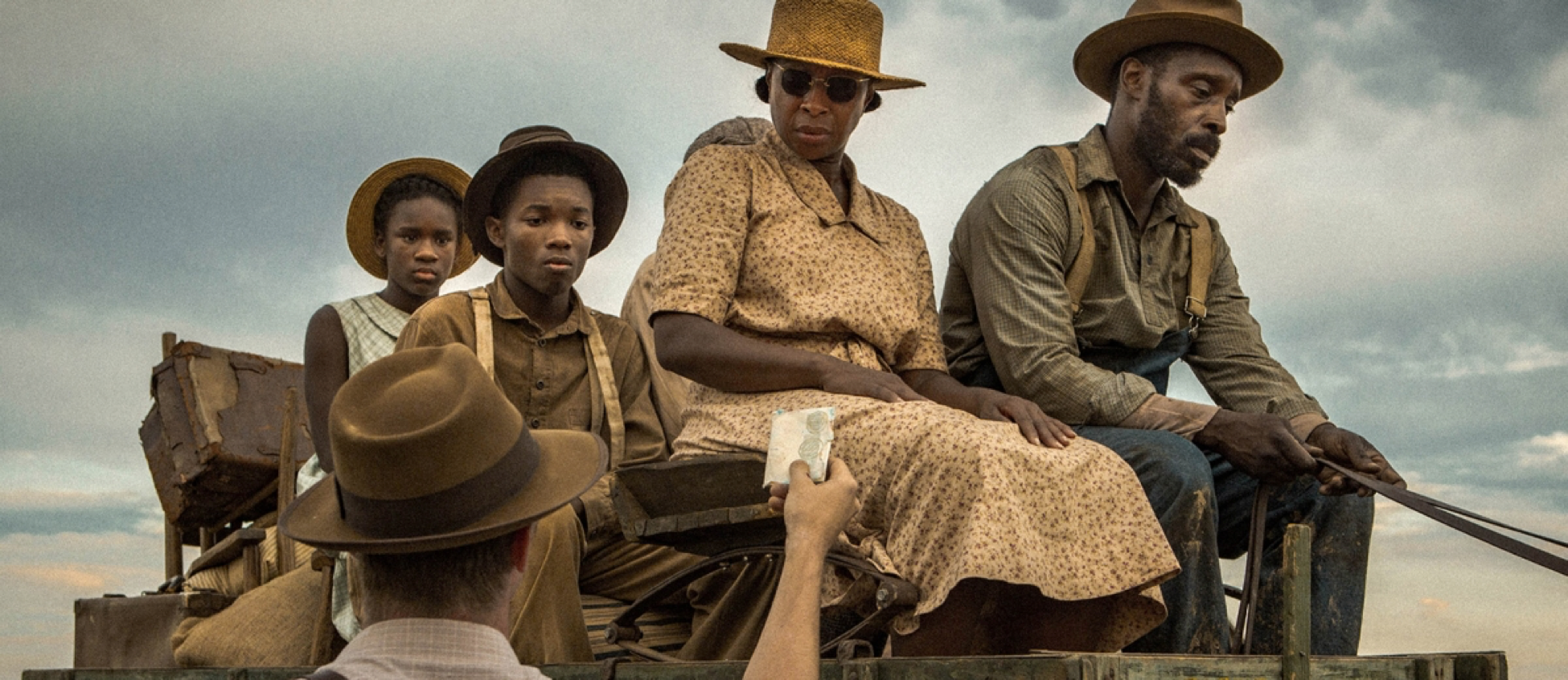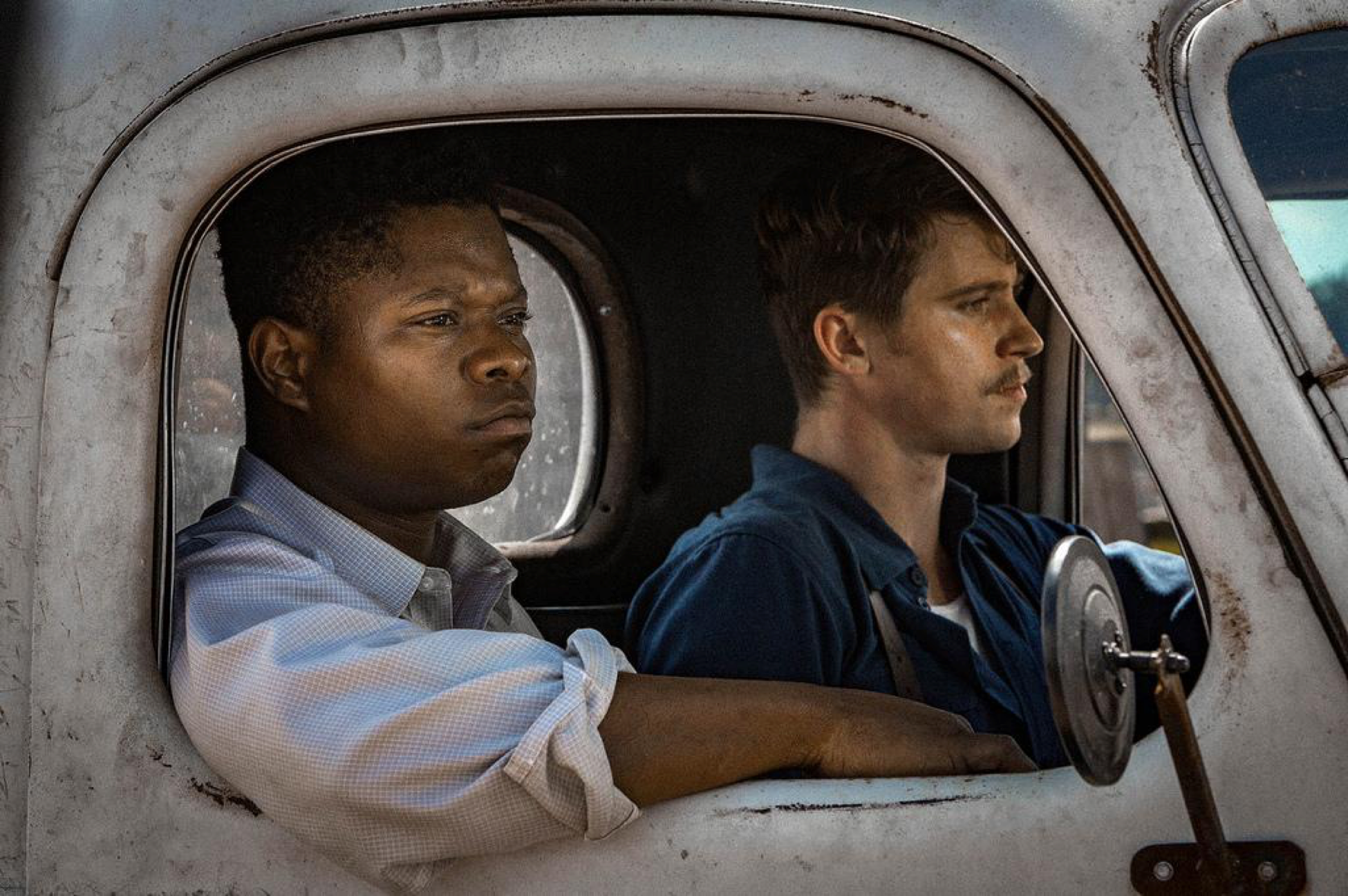This article previously appeared on Crossfader
Director: Dee Rees
Genre: Drama
Year: 2017
I’d wager that it will take a few years before Academy voters are comfortable enough with handing over a best picture statuette to a streaming service, but MUDBOUND makes a pretty strong case that this could happen sooner than we may expect. Looking back at everything that’s released in 2017, I’ve come to a curious revelation: unlike virtually every year preceding this one, we don’t have a clear, pre-designed Oscar darling. Sure, THREE BILLBOARDS OUTSIDE EBBING, MISSOURI occupies the same dramatic spectrum as last year’s MANCHESTER BY THE SEA, but where’s our melodramatic tech marvel? As much as we have been singing the praises of DUNKIRK and BLADE RUNNER 2049, they aren’t exactly peers to HACKSAW RIDGE, LA LA LAND, or THE REVENANT, mainly due to their lack of an Oscar-worthy central performance. That is to say, yes, MUDBOUND would probably have befallen the same fate as 2015’s BEASTS OF NO NATION, swept under the rug come awards season despite its countless merits, but in a cinematic year that’s been a little light on star-studded, topical, picturesque, ensemble cinema, a Netflix film may just be a viable contender for Academy gold.
Based on Hillary Jordan’s novel of the same name, MUDBOUND is quite the cinematic undertaking. Detailing various facets of domesticity in the Deep South, and juxtaposing this against aerial and ground warfare in Europe, MUDBOUND tackles everything from PTSD to interracial romance. Capturing the domestic and professional lives of black and white American families preceding and following the events of the Second World War, director Dee Rees seems concerned with two specific notions: primarily, the shifting psychological mindset of African American veterans after spending years fighting against an oppressor, only to return to a country that hates them. And secondly, the seemingly insurmountable obstacles that lie in the way of African American families trying to regain their sovereignty in the wake of a post-slave-owning United States.

Pictured: Passport Control
Rees does all of this with time. A lot of it. MUDBOUND is a southern epic, a 135-minute ensemble piece that shifts its points of view in order to analyze how different genders and ethnicities ideate on similar anxieties. There are phenomenal subtleties at play that wonderfully elevate the storytelling, often achieved through the collocation of matching scenes. Perhaps the most profound is Rees’s capture of returning veterans. The arrival of an African American soldier at his family’s doorstep is met with tears and a warm dinner. In sharp contrast, a white veteran is giddily greeted by his brother, but with a far less overt emotional weight being lifted off his shoulders. In doing so, Rees highlights the overbearing presence of death in black communities. To a white family, dying in war is so far removed from any perceivable reality that coming home safe is basically an obligation.
It’s because of this that Rees’s film is at its very best when it explores the minutiae of Southern life. A black mother lamenting on her inevitable responsibility for her white neighbor’s children is unbelievably poignant. The same goes for a black father’s frustration when his wife is expected to start working as a maid for the white family next door. It’s this discourse on agency (or lack thereof) that makes MUDBOUND so masterful. There’s something rather minimalist in its design. Despite the war scenery and the breadth of its set pieces, MUDBOUND primarily operates in the ilk of an Ozu film: most concerned with the slow, subtle, day-by-day conflicts that make Mississippi life so difficult. It’s because of this that MUDBOUND moves so slowly, almost directionless at times, often registering more like a novel than a traditional film. But that’s a wonderful quality for a project that so elegantly brings its rich, deeply troubled characters to life.

They see me rollin’
Unfortunately, Rees does shoot herself in the foot nearing her third act. I’d wager that MUDBOUND would be a far more artistically commanding film if it would only tackle these slow-burn, day-to-day aggressions—social hierarchies and all. It’s no surprise that MUDBOUND, being a Netflix release (and a Sundance darling), does play it a little safe, opting for a far more arresting climax. That isn’t to say that any of this is bad—in fact the film’s climactic scene is absolutely chilling—but Rees’s film is certainly at its most derivative when it reads like a capital-F Film. It’s something that rears its ugly head in the film’s climactic scene, in which Rees rather clumsily integrates an ongoing motif about “looking the man you’re about to kill dead in the eyes.” It links back to thematics of PTSD (which until then are addressed quite competently), and is framed around a Klu-Klux Klan gathering, all of which registers as a heightened dramatic moment that feels a little out-of-place for an otherwise exceptionally low-key societal drama.
It’s hard to really criticize MUDBOUND for anything it does wrong, because it’s so unbelievably gripping despite its setbacks. Rachel Morrison’s outstanding cinematography and the ensemble’s powerhouse deliveries (notably Mary J. Blige and Jonathan Banks) really crack the whip on a bleak, but necessary, cinematic outing. Though Rees’s film is at its best when it’s a more universal depiction of the black experience, it certainly doesn’t lose steam when it transitions into a more specific dialogue on white supremacy. That is to say, MUDBOUND is in many ways a film about abuse. While its first two acts are more internal, challenging the notions of emotional, financial, and psychological abuse in a racially divided America, its finale externalizes this brutality in a far more physical manner. The mileage viewers will get from this depends on their desire for MUDBOUND to come to a traditional conclusion. For my money, I’d have welcomed a less outwardly visceral finale. Nonetheless, this is a best picture contender if I’ve ever seen one.
Verdict: Recommend















Comments